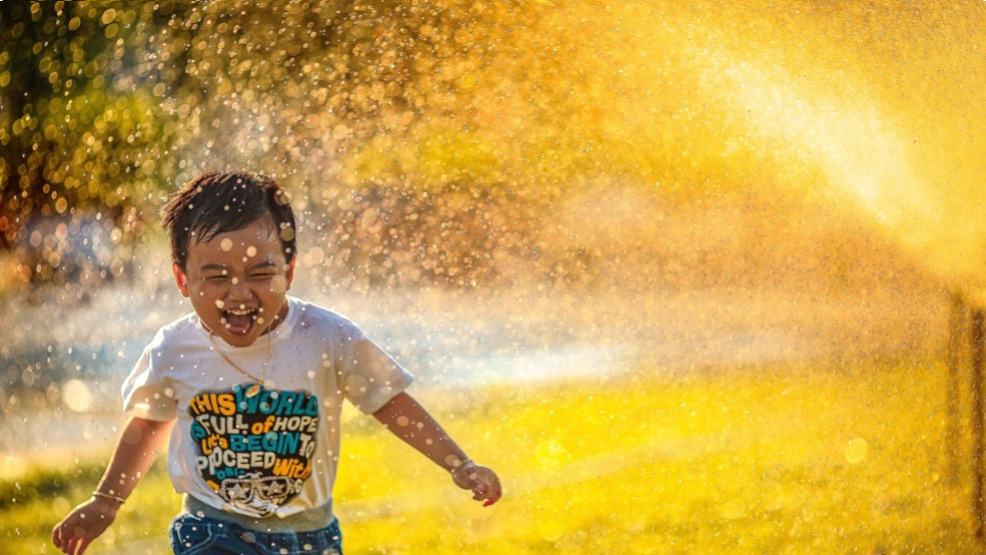5 Tips for Developing Fundamental Movement Skills
- Written by: Samira Ali & Lynne Lafave

With many extracurricular activities cancelled due to the pandemic, it’s important to ensure children are getting enough movement during the day! According to Canada’s 24-Hour Movement Guidelines, preschool-age children (3-5 years) should engage in at least 180 minutes of physical activity throughout each day.1 One way to get children active during the early years is by encouraging the development of fundamental movement skills (FMS), which can also improve a child’s physical literacy.2 Physical literacy is the process in which individuals explore different types of movement in order to establish habits that allow them to be active for life.
What are Fundamental Movement Skills (FMS)?
Fundamental movement skills are as important as learning to read and write! FMS can be broken down into three categories:
- LOCOMOTOR: walking, running, skipping, galloping
- STABILITY: balancing, twisting, stretching, bending
- OBJECT CONTROL: throwing, catching, kicking, trapping
These skills can contribute to promoting a healthy lifestyle and lifelong physical literacy. Through games and activities, you can help children master fundamental movement skills and develop their physical literacy in fun and creative ways.
Here are some tips and activity ideas to get children moving:
1. Consider the different ways you can travel with your body
Does your child love animals? Superheroes? Dinosaurs? Have them move through the classroom space while imitating their favourite characters’ movements:
- Animal Friends Activity– Check out this video example of how this activity can look
- Shake Your Sillies Out Activity
2. Utilize common household objects
Try using common objects such as scarves, Kleenex, or balloons to get children moving! You can throw something in the air and challenge children to run and catch the object, so it doesn’t touch the ground! Do you have a narrow hallway and yarn? Tape yarn pieces to the wall and create a laser maze! Pretend the children are spies and have them get through the hallway without touching the yarn.
3. Don’t forget that falling is a skill
Encourage children to jump into powdery snow or onto piles of pillows and blankets. Normalizing falling will help them realize that falling does not equal hurting. By learning to fall safely, children will also learn how to balance themselves to prevent falling.
4. Give children lots of space to move
Utilize the space you have, whether it’s indoor or outdoor; make as much space as you can to allow them to dramatize their movements. Play upbeat music to energize the children or play calming music as a sign of a cool-down period.
5. Make physical distancing part of the activities
By using mimicking techniques, kids can follow the instructions from two metres apart. Games such as Simon Says can be great to get kids to copy your actions while promoting a safe space barrier. Promote locomotive and stability skills through physically distanced dance parties.
Developing fundamental movement skills is an ongoing process. If the child is disinterested in particular activities, take a moment to figure out why:
- does the game lack objective or is it unrelated to their interests? ⇒ Find a new game that engages them.
- does the child feel frustrated with the form of movement? ⇒ Try to establish what part of the movement process is too advanced and modify the activity with more basic movements until they are ready!
For more activities, including modifications for different physical abilities
References
-
Canadian Society for Exercise Physiology. (n.d.). Canada’s 24-Hour Movement Guidelines for the Early Years (0-4): An Integration of Physical Activity, Sedentary Behaviour and Sleep. https://csepguidelines.ca/early-years-0-4/
-
Lubans, D. R., Morgan, P. J., Cliff, D. P., Barnett, L. M., & Okely, A. D. (2010). Fundamental Movement Skills in Children and Adolescents. Sports Med, 40(12), 1019-1035. https://doi.org/10.2165/11536850-000000000-00000
Author Bio
Lynne Lafave is an associate professor in the Department of Health and Physical Education at Mount Royal University in Calgary Alberta. She holds a doctorate in nutritional sciences and her research focuses on nutrition, physical activity, and well-being initiatives in early childhood education and care. As the principal investigator on the CHEERS project, she works jointly with early childhood educators and CHEERS project coordinators to support early child health and well-being initiatives in the early childhood education and care setting.
Samira Ali is an education student at the University of Alberta. She obtained her BA in Sociology at Mount Royal University.